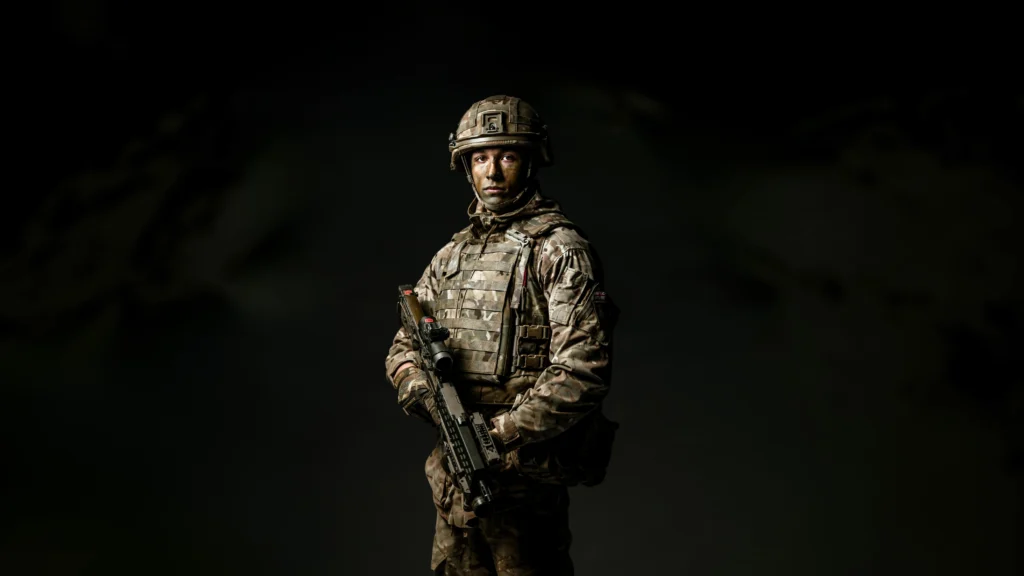
When we think of people who execute flawlessly under pressure, who stay calm under chaos, and who push their limits relentlessly, one image comes to mind: a soldier.
Across the globe, soldiers are seen as symbols of extreme focus, unshakable discipline, and consistent execution.
But what makes them this way? And more importantly, can we learn from it?
The Transformation: From Civilian to Soldier
Every year, thousands of civilians walk into military academies—undisciplined, distracted, and full of excuses.
Just 90 days later, they emerge unrecognizably transformed. They wake up without snoozing the alarm. They follow through without negotiation. They execute under pressure without collapse.
This transformation is no accident. It is the product of a carefully designed environment, a system of discipline, and time-tested principles drilled into them every single day.
Whether it’s the U.S. Marine Corps, the Indian Army, the Israeli Defense Forces, or the British Army—the pattern remains the same. In 8 to 12 weeks of basic training, soldiers are rebuilt from the inside out.
What Makes Military Training So Powerful?
-
Environment of Non-Negotiation
In military training, there’s no “maybe” or “I’ll try.” Orders are clear. Deadlines are immovable. Tasks must be completed, no matter the weather, mood, or motivation. This trains the brain to execute, not negotiate. -
Repetition Until Identity Change
Tasks are repeated until they are no longer tasks—they become part of identity. Waking up at 5 AM isn’t a rule, it becomes normal. Discipline isn’t forced, it becomes part of who they are. -
Immediate Feedback & Consequences
If a recruit misses a drill or underperforms, the consequence is immediate. There’s no gap between action and correction. This creates behavior correction loops that stick. -
Unity and Squad Pressure
You don’t fail alone—your failure impacts the squad. That peer pressure creates relentless accountability. When you know others depend on your actions, you don’t slip. -
Structured Days With Clear Priorities
Military days are planned to the minute. This builds a habit of prioritization, time-blocking, and respecting time. -
High Standards, No Exceptions
There is no “good enough.” The standard is excellence. And everyone is expected to rise to it. It stretches a recruit’s mindset and builds a habit of overdelivering. -
Physical Training to Build Mental Resilience
Endurance drills, obstacle courses, and combat simulations aren’t just for the body. They teach how to push through discomfort, pain, and fear—a skill that spills into every other area of life. -
Living With Discomfort
Cold showers. Long marches. Limited sleep. Constant challenges. Soldiers are trained to be comfortable being uncomfortable. It rewires their tolerance for pressure. -
Command and Clarity
There is always clarity on who is in charge, what needs to be done, and what the mission is. This cuts noise and builds execution speed. -
Rituals That Reinforce Identity
From uniform inspections to morning routines to pledge recitations, every day reinforces the identity of being a soldier. Rituals are not decoration—they are behavior sculptors.
Real-World Evidence
-
A 2018 study by the U.S. Army found that recruits reported a 67% increase in self-discipline and a 52% increase in emotional control after 10 weeks of training.
-
The Israeli Defense Forces use a method called “Masa Kumta” (Beret March) to symbolize transition from recruit to warrior—a final physical and mental test after months of structured buildup.
-
In the UK, veterans are often recruited into productivity and leadership roles in corporations because of their proven ability to execute under pressure.
Why This Matters for All of Us
You don’t need to be in the army to benefit from military principles. These principles aren’t just about war. They’re about winning over yourself. They teach us how to:
-
Stop negotiating with our goals.
-
Build identity-level habits.
-
Make execution non-negotiable.
-
Thrive in structure.
-
Grow under pressure.
The Military Style Execution Program takes direct inspiration from these principles.
Our system gives you daily structure, human accountability, peer squads, execution rituals, and pressure-driven follow-through—so you don’t just plan goals, you finally execute them.
If military training can transform a civilian into a soldier in 90 days, imagine what it can do for your productivity when even a part of that system is applied
